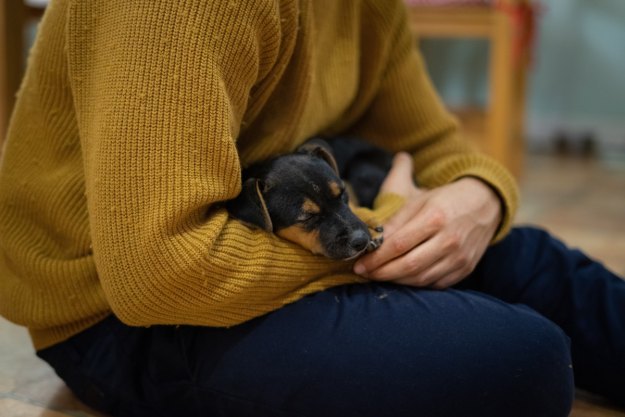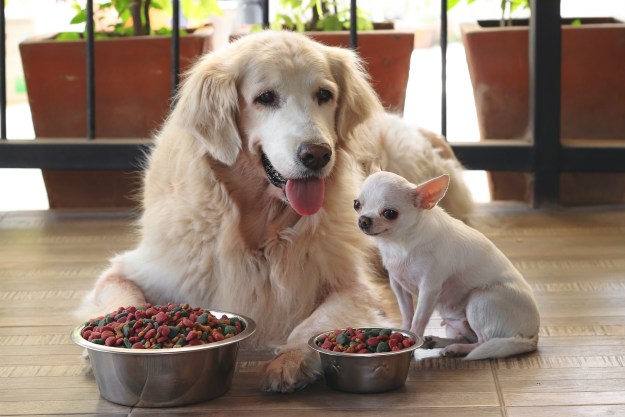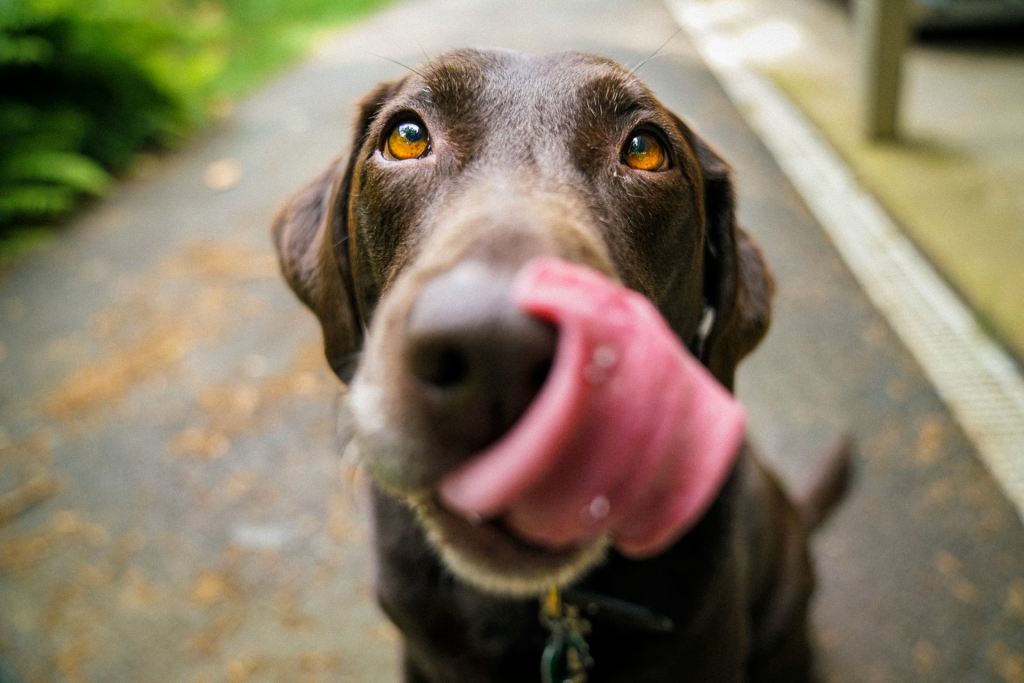
Licking is such a fundamental part of dogs, and dog ownership, that we frequently take it for granted. Whether you tolerate or hate it, it’s impossible not to notice your pup’s wet tongue when they decide it’s time to give you a bath — though it’s not always clear what exactly they’re up to. You might get tongue kisses every day from your pooch, but that doesn’t mean that this behavior always indicates a good thing.
Specifically, why do dogs lick their owners’ faces? This is a common phenomenon that nearly all pet parents will experience at one time or another, and it’s easy to see why it raises some questions. Face licking — or licking in general — can range from completely random and infrequent to constant and obsessive, so it’s important to pay attention to your furry friend’s specific behaviors when asking why. Here’s what to consider when your dog starts licking your face.
Where does licking come from?
It’s thought that humans kiss on the mouth because it was an old method of feeding children. The principle remains the same in pups. Dog moms lick their puppies and the babies lick their littermates and sometimes mamas as well. This is a natural part of play, and it’s a good way to discover the world for a fresh beast.
In addition, dogs taste and smell a lot better than we do, so they also perceive information from their tongues. While you might only get a good taste once something is in your mouth, your dog might put his tongue in the air to catch the flavors of the breeze. Lastly, our buds don’t shower much in wild and need to lick to stay clean.
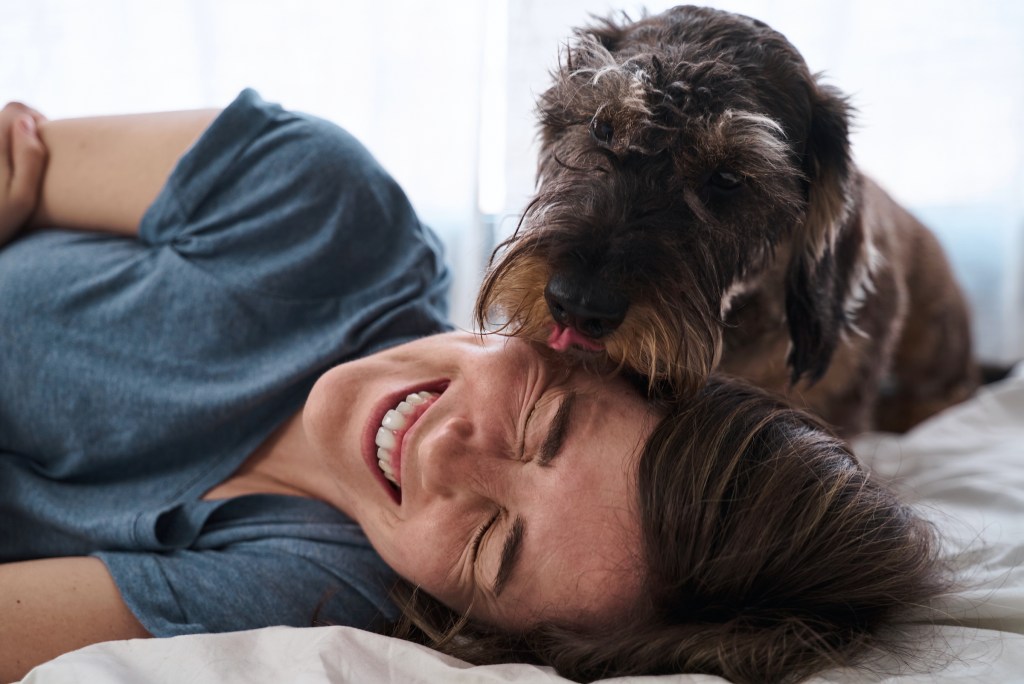
Why do dogs lick you?
As we mentioned, it’s tricky to discover the exact underlying cause behind a dog smooch, but you might be able to pay close attention to figure it out. Any one of these could prompt them to suddenly cover you in kisses, although there can be medical reasons for excessive licking as well.
Affection
We instinctually seem to understand this: Usually when our pets kiss us, it means they’re happy to see us. They may also be offering a greeting or even submission to an owner or older dog. Regardless of the deeper meaning, you don’t have to worry about this one.
Smell
Have you ever seen your dog lick something really strange like a pen or a wall? To us, it seems nonsensical, but our buds can gather a lot of data this way. You’ll especially notice a new pet sticking their tongue in odd places as they figure out their new environment.
Grooming
Hopefully, you bathe your pet every month or so, but they need a little wipe down in between. If you notice your animal licking their paws (and sometimes genitals) after walks, this means they want to stay clean after traipsing through the great outdoors. A sudden increase in grooming can indicate a health issue, including worms, so note any changes to behavior.
Anxiety
Rule out a medical condition first, but excessive licking, especially of their paws, might give you a window into your dog’s mental health. Stress can cause dogs to continuously lick, even for hours at a time. The most important part is to figure out the underlying issue, but you should also speak to your vet about preventing it, perhaps with a cone.
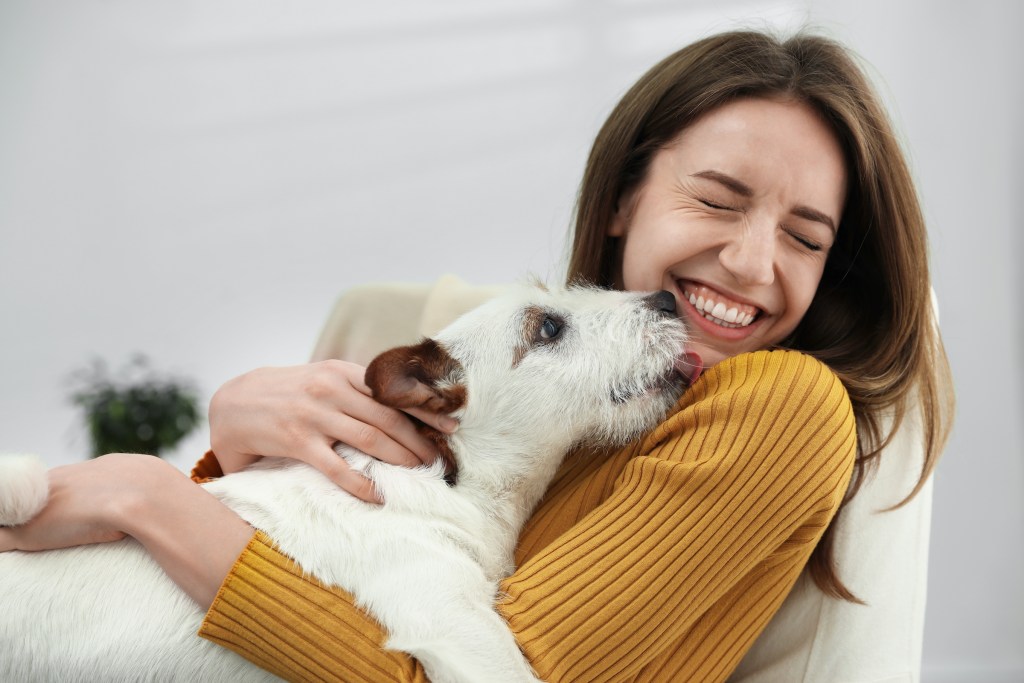
Why do dogs lick their owners’ faces?
When it comes to licking their owners, are dogs actually giving kisses? Certified applied animal behaviorist Dr. Mary Burch says yes: “Licking can be a sign of affection,” she explains to the American Kennel Club. “It might also give a dog a feeling of security and comfort, just as the dog had when licked by its mother in the litter.”
This can be the case no matter where on your body your pup is licking you – even your face. Veterinarian Dr. Jennifer Coates explains that, because “people make up most of a dog’s pack, licking behavior has been transferred to us […] Dogs often lick people to show affection, as a greeting, or to simply get our attention. Of course, if you happen to have a little food, lotion, or salty sweat on your skin, that may play a role as well.”
However, this behavior goes deeper than affection and attention. Instinctively, your dog may lick your face in hopes that you’ll regurgitate something for them to eat. Dr. Burch notes that your pup may be seeking out salt or something they’ve smelled on you.
If it’s been a while since your last meal, though, you can feel more confident that licks are a sign of affection. If you don’t feel special already, you should!
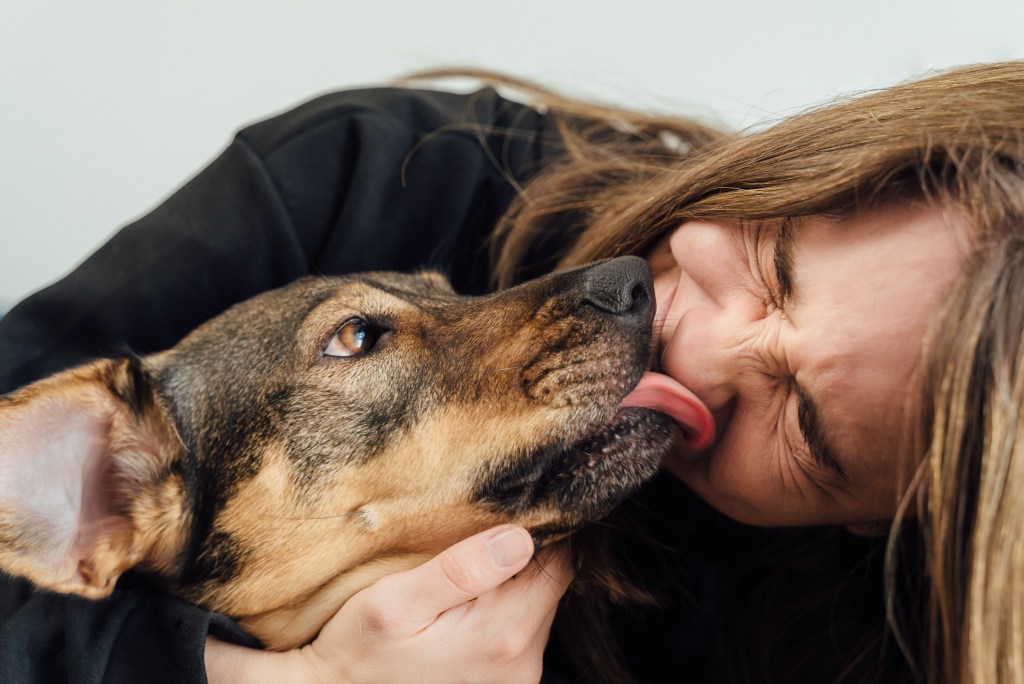
When to be concerned about excessive licking
For the most part, licking is not a cause for concern — whether they’re licking you, an object, another dog, or themselves. There is a slight risk of bacterial transmission, notes Dr. Coates, though humans and animals have no need to worry if they have a healthy immune system. Open wounds can also be more susceptible to bacteria, so you should keep an eye on any injuries — yours, theirs, or someone else’s — that your furry friend pays attention to.
If you’re feeling concerned about your furry friend’s licking behaviors, a trip to the vet can tell you everything you need to know. This can be especially helpful if excessive licking irritates your pup’s skin, though you don’t need to wait for the problem to progress before asking for help. If you’re unsure, give the vet a call! That’s what they’re there for, after all.
In most cases, though, don’t be alarmed. In fact, it will probably make you smile. There’s nothing quite like the attention of the pup to make your day, even if they’re just searching for the remnants of your lunch.
Editors' Recommendations
- How long do dachshunds live? The truth might surprise you
- Are ‘dog years’ really 7 human years? How to calculate your dog’s age
- Why does my dog have a bald patch on their tail? Here are the answers you need
- Looking for signs your dog has ticks? These telltale symptoms mean you have a flea or tick problem
- Is your dog barking nonstop? Here’s how to get your noisy pup under control


